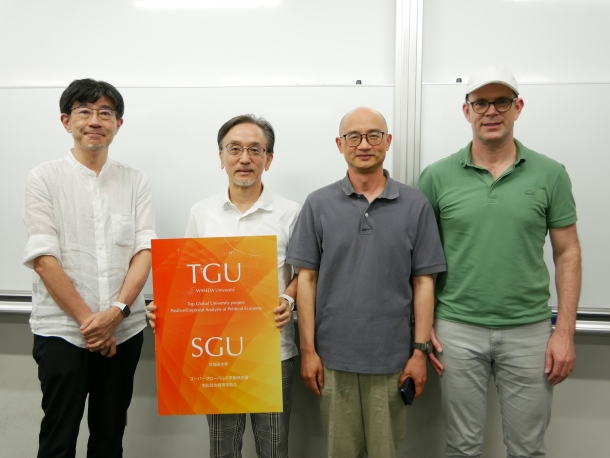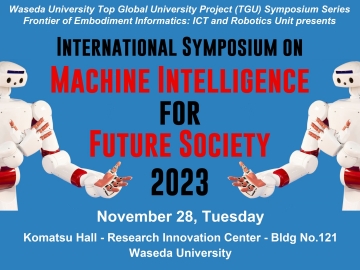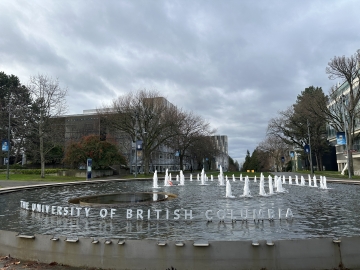The Center for Positive/Empirical Analysis of Political Economy and The Institute for Empirical Research in Organizational Economics invited Professor Wouter Dessein of Columbia University as a keynote speaker for the Organizational Economics Conference held at Waseda University on July 15, 2023 (Saturday).
Hayato Kanayama, Graduate School of Economics (Hideo Ohwan Laboratory, Faculty of Political Science and Economics)
A total of about 50 participants (22 of whom were graduate students) attended the conference. The morning workshop featured presentations on theoretical research, while the afternoon session featured lectures on empirical research. A feature of this year’s conference was the large number of reports on research related to the various roles of middle managers and their evaluation and selection, both theoretical and empirical.
Presentation Themes
Why middle managers exist
How important are people management skills of middle managers?
How do middle managers affect the health of their subordinates?
How important is labor allocation within teams of knowledge workers in determining team productivity?
How important is the leader’s ex ante coordination in the management of knowledge work?
How information provision and monetary transfers between experts and decision makers are determined
What international division of labor patterns emerge when there is complementarity or substitutability among workers internationally in an international supply chain?
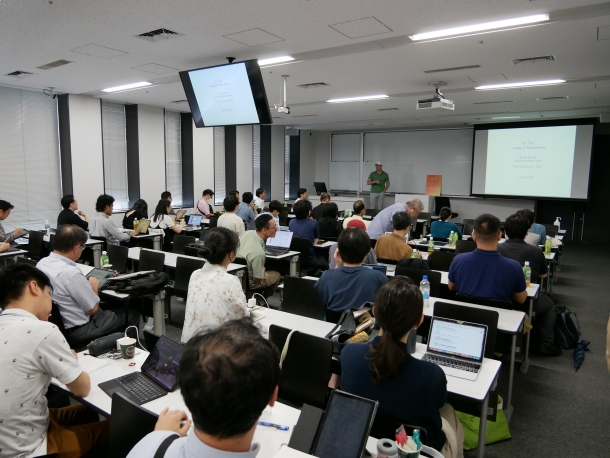
Professor Dessein’s feedback on each presentation, including questions about the model setup and the storyline assumed in the model, helped many of the graduate students in attendance deepen their understanding. He also focused on areas that had been mentioned in previous studies but not considered in this presentation, and gave useful advice including the expected results.
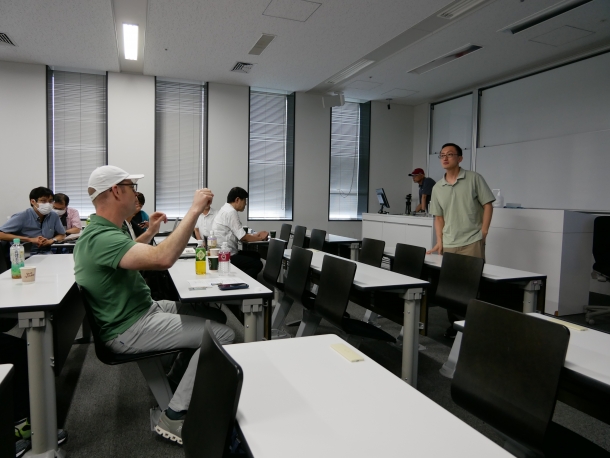
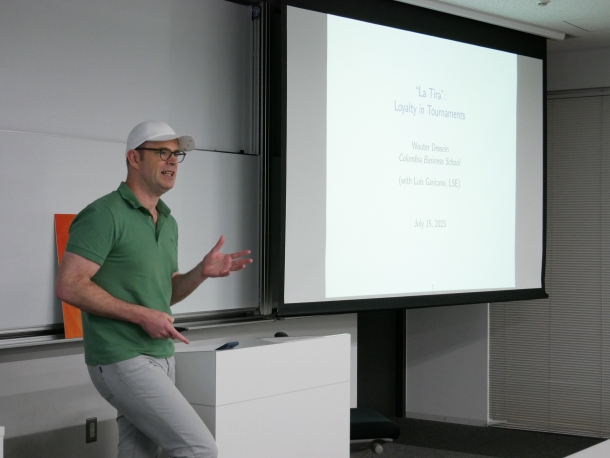
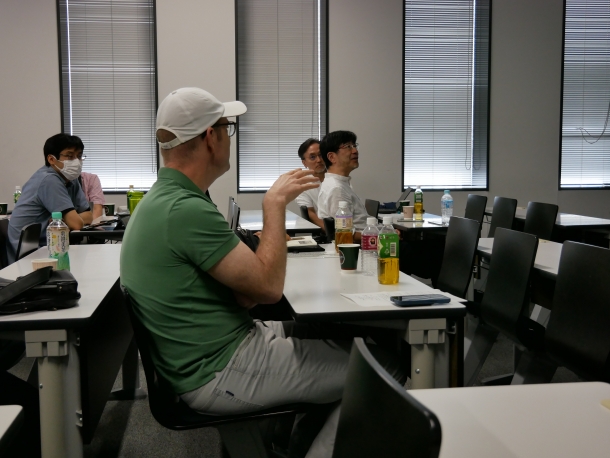
In the keynote address, Professor Dessein presented “Loyalty in Tournaments,” a joint research project with Professor Luis Garicano of the University of Chicago. This study examines the optimal choice of a follower for a leader in a model in which a leader and a follower form a team and compete with other teams for a winner-take-all reward. Followers differ on two axes: competency and loyalty. They show that under certain circumstances it is sometimes preferable for a leader to select a follower who may be less competent but more loyal, because when the leader is teamed with a highly competent follower, there is an inclination for the follower to abandon the leader when the possibility of losing arises. He likened the leader-member relationship in a political party to a team of high mountain climbers who bind each other with a single rope to ensure their safety (“la tira” in Spanish), illustrating the trade-off between loyalty and competence.
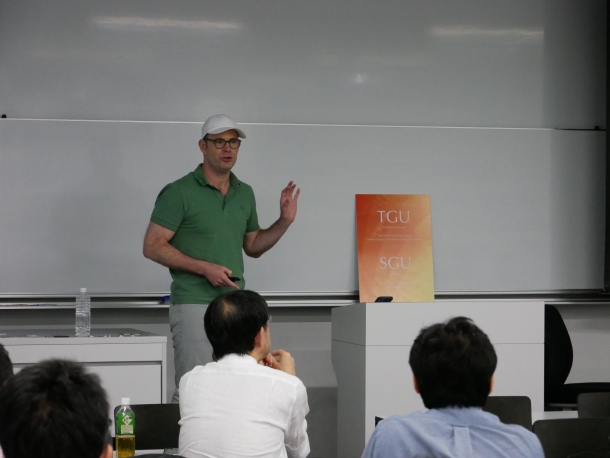
The discussion between Professor Dessein and the participants helped us to understand the importance of discussing the results of data analysis, even in empirical analysis, with a deeper consideration of the theory and assumptions behind it. Overall, the presenters and participants had the opportunity to receive direct and detailed feedback from leading international researchers, and were able to learn useful ideas for conducting research in the future.
